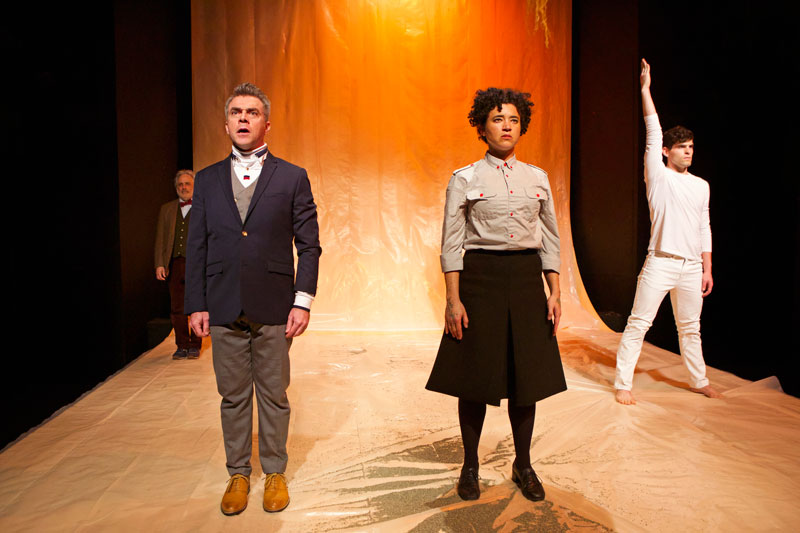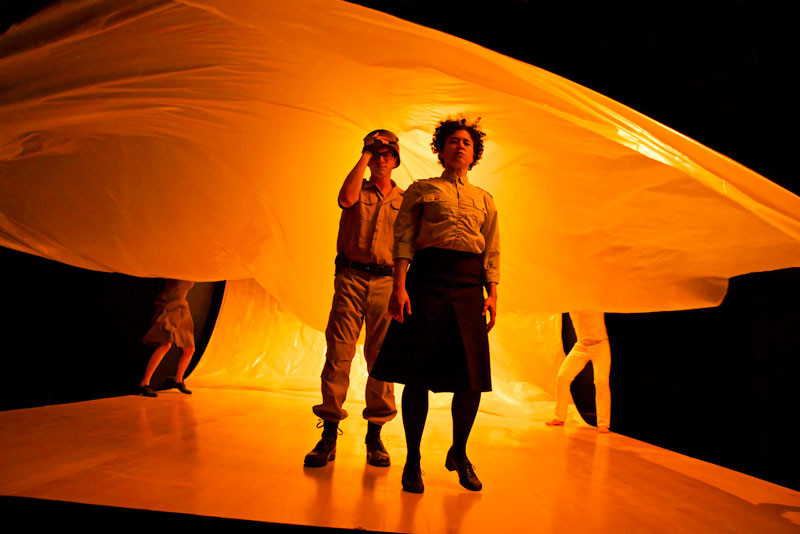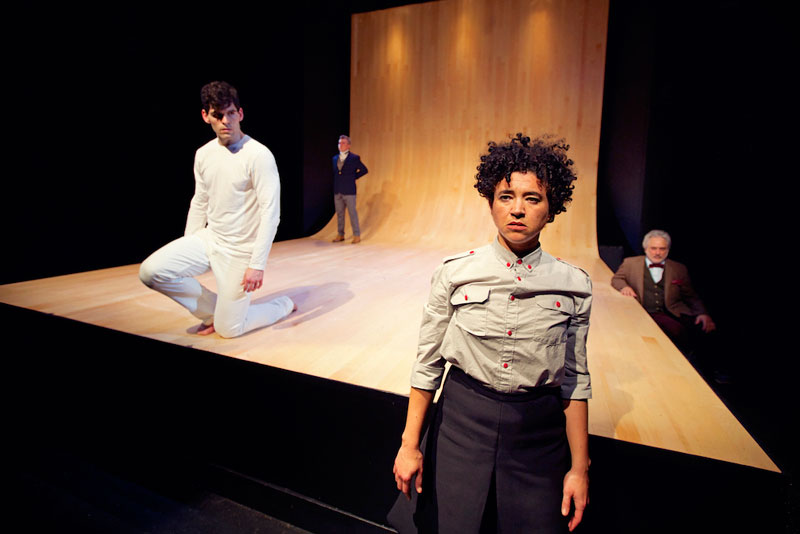There’s a terrible resonance to the story of a young woman who stands alone against an oppressive government. Shotgun Players’ Antigonick is the third bold new interpretation of Sophocles’ ancient tragedy Antigone to be produced by a Bay Area theater in the last couple of months; African-American Shakespeare Company’s Xtigone and the Cutting Ball Theater’s Antigone both premiered in February. For anyone lucky enough to catch all three, there’s been nothing repetitive about the experience. The bones of the story are the same, but the meat of each has a drastically different flavor.
Antigone, a princess of Thebes, is the daughter of king Oedipus. During a civil war that starts after the king’s death, his two sons, Antigone’s brothers, kill one another. The new king, her uncle Kreon, decrees that one brother be buried with honor and the other be left to rot as a traitor. Antigone defies this law and buries her brother, and both she and the king must pay the price for their stubbornness.

Antigonick is a startling reinvention of the classic story and a marvelous kick-off to Shotgun’s 2015 season made up of plays by women playwrights. Canadian poet and classics scholar Anne Carson (a MacArthur “genius” grantee) calls her play a translation of Sophocles’ original, but she’s “translated” with a pretty free hand. Antigone and her sister Ismene discuss Hegel’s and Brecht’s interpretations of their story. There’s a lot of discussion of what particular words mean, and one important speech is reduced to a single word. Carson’s language is continually fresh and surprising; the famous “numberless are the world’s wonders” speech becomes, “Many terribly quiet customers exist, but none more terribly quiet than man.” The text is very, very pared down. Even with extended passages of pure movement, Shotgun’s production runs only an hour and 15 minutes.
Antigonick was conceived not as a script to be performed but as an illustrated book, published in 2012 by New Directions. The text is all handwritten in capital letters, often in big blocks of text, with new speakers coming in without a line break. Sometimes there are long stretches of white space on the page, usually in mid-sentence.
Then there are the book’s illustrations by Bianca Stone, which don’t seem to have anything to do with the story and were reportedly inserted between the pages at random by Robert Currie, the book designer and Carson’s husband. The images show people with cinderblock heads, spools of thread, lonesome shacks, surreal landscapes and a lot of horses. (Carson has since followed the book up with a more traditional translation of Antigone that’s currently playing in London and stars Juliette Binoche.)

In short, there’s a lot of interpretation necessary for any director intrepid enough to tackle Antigonick. Shotgun’s production has two co-directors: the always inventive Mark Jackson and choreographer Hope Mohr. Both have intensely physical styles, so it’s no surprise that their staging takes the form of a spellbinding piece of dance theater.



